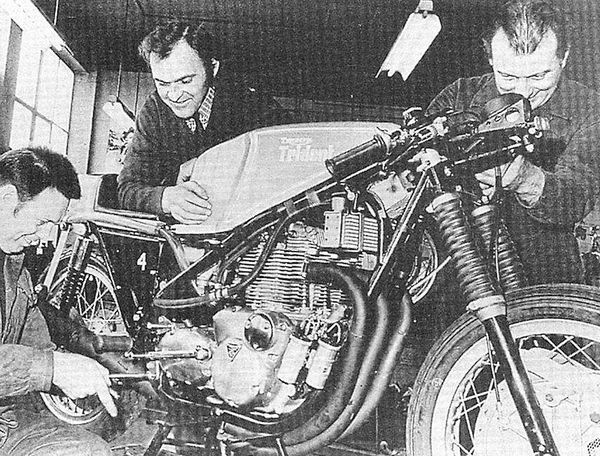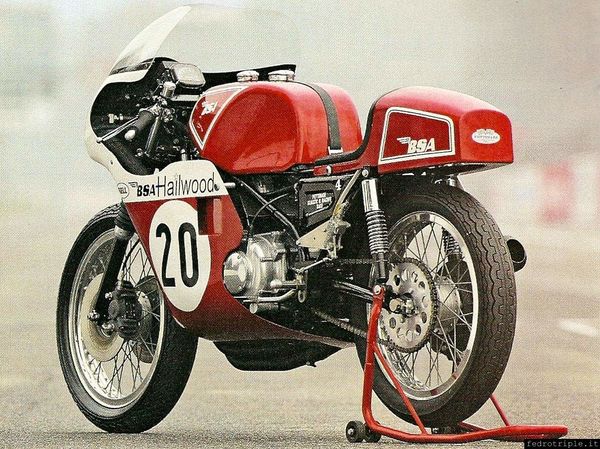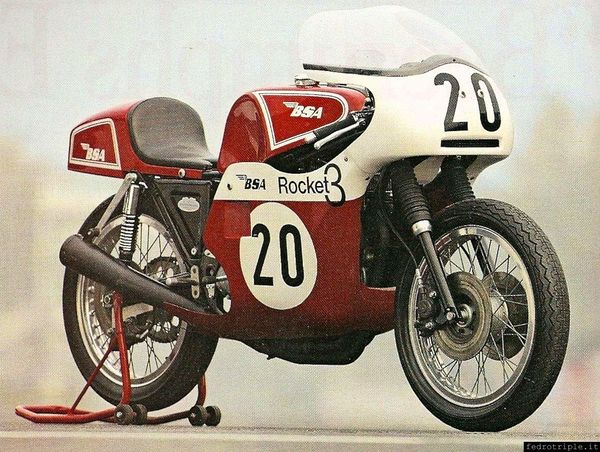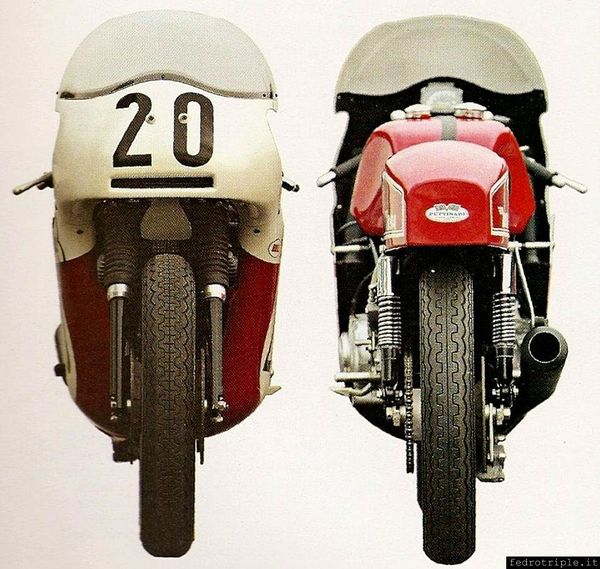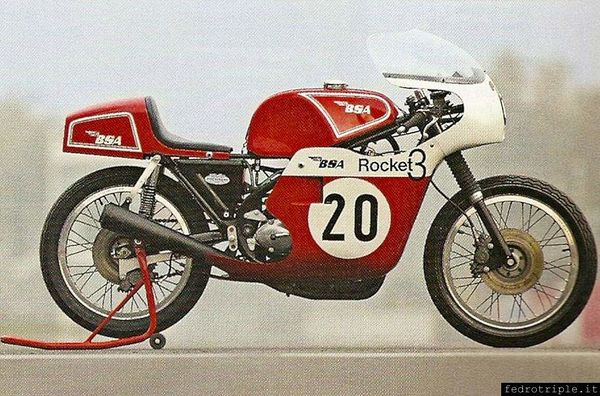BSA750 Daytona
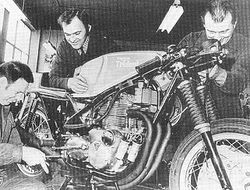 |
|
| Racing Bikes BSA750 Daytona | |
| Class | Racing |
|---|---|
| Weight | |
| Manuals | Service Manual |
Photos[edit | edit source]
Overview[edit | edit source]
BSA 750 Daytona
The British motorcycle manufacturers have always been the only
serious challengers to Harley-Davidson and Indian at the Daytona Beach 200
Miles. Since 1937 Indian has had three Daytona wins and Harley-Davidson sixteen,
while Norton has had four (consecutive) wins, BSA one, and Triumph three.
In 1970 a Daytona win seemed attractive to any company doing
business in the United States. British manufacturers were particularly
interested because of the economic crisis at home, and they were keen to do well
in the higher-cylinder market. The Triumph-BSA team had three-cylinder racing
motorcylces ridden by the leading British and American champions, and the
predictions were all in their favor.
Although the Triumph-BSA was the fastest motorcycle in the
race, it was plagued by cooling problems with the center cylinder and had to
withdraw from the race. During the trials the American Gene Romero had set a
record time of almost 160 m.p.h., but Dick Mann won the race with a Honda. In
1971 BSA and Triumph (the only difference was that the BSA cylinders were
inclined forward 10°) were back at Daytona with ten motorcycles and a large
staff. The Triumph-BSA cooling problem had been solved. Mann came in first with
a BSA, Romero second with a Triumph, and Don Emde third with a BSA.
Motorcycle: BSA 750 Daytona Manufacturer: Triumph-BSA,
Coventry Type: Daytona Year: 1971
Engine: BSA three-cylinder, four-stroke, rod-and-rocker distribution and double
camshaft. Displacement 740.38 cc. (67 mm. x 70 mm.)
Cooling: Air
Transmission: Five-speed semiblock
Power: 84 h.p. at 8,200 r.p.m.
Maximum speed: Over 165 m.p.h.
Chassis: Double cradle, continuous, tubular. Front and rear, telescopic
suspension
Brakes: Front, central drum, four shoes, four-cam, or hydraulic double disk;
rear, hydraulic disk
Photos & complete Dayton story
